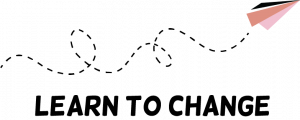
In the framework of the Learn to Change project, we incorporated the digital storytelling method into our course “Basics of Sustainable Tourism” at the Faculty of Commerce, Hospitality and Tourism of the Budapest Business School in autumn 2022. This is one of our most important professional courses for first-year students in Tourism and Hospitality.
A creative assignment with constant support
During the Sustainable Tourism course, we piloted materials created in the Learn to Change project. We offered the students the following assignment:
“Choose a topic that illustrates the relationship and interconnection between tourism and sustainability and create a video using the digital storytelling method to present it to your fellow students.”
They had six weeks to plan and implement their project during the semester. Work was carried out with eight groups of 3-4 students (30 students in total). We met up with the students regularly to give them opportunity to ask questions, share their ideas, and present the current stage of their work.
They were given a to-do list, and deadlines were set for the sub-tasks to ensure that everything was completed on time. We also set up an online platform where they could keep in touch, access the learning materials and information they needed to complete the project, and upload their completed materials.
Digital storytelling to enrich ways of learning
Each group had to produce a collection of film ideas, a storyboard, a script, a video (for a social media platform of their choice), and a final presentation explaining how their film was made: what they did, why they did it, and how they did it.
The students shared their presentations in their larger seminar groups, altogether consisting of 210 first-year students, with fellow students giving feedback by filling in a short questionnaire. At the end, both the digital storytelling product and process were evaluated and the results were included in the students’ mid-term performance.
We concluded the experiment with the following benefits:
- Opportunity: The students were able to undertake a hands-on group project in their first semester. They had to put into practice the professional knowledge they had acquired in the seminars by using a new methodology, digital storytelling.
- Motivation: The non-traditional digital storytelling task was an effective motivation for the students, most of whom were enthusiastic and happy about the approach.
- Skills: The digital storytelling project allowed the students to use their skills in a variety of ways. They developed their language skills, their ability to use digital tools, and their professional knowledge of sustainable tourism.
- Reinforcement: The students were able to prove that they could perform well and learn successfully in new environments, under unexpected conditions, and in diverse ways.
- Encouragement: The experience of successfully completing the tasks had a positive effect on the students’ self-confidence and their results be used to encourage other students as well.
Digital storytelling is challenging but rewarding
From the teachers’ point of view, the digital storytelling projects created a lot of extra work. Even so, working with the enthusiastic students was very inspiring and resulted in many positive experiences. The digital storytelling method definitely proved useful. The project had the expected impact: it was a powerful way to attract and focus students’ attention on sustainable tourism.
Of course, we also faced many challenges while working on the projects:
- The course was offered to first-year students who had only just started their university studies – they had no experience and did not know each other.
- The assignment was advertised as a BSc course in Hungarian, but they had to complete their project in English.
- The DST methodology had to be taught separately to the students, on top of the regular course content and materials.
- The assessment of the digital storytelling projects had to be integrated into the subject requirements.
In the end, however, we feel that the benefits greatly outweigh the challenges. At the end of the semester, we received this feedback from one student:
“I would like to thank you for your work during the semester and also for the wonderful film project. We really enjoyed making it and I am glad that I had the chance to try such great things in my first semester.”
Text: Csilla Petykó, Budapest Business School, Faculty of Commerce, Hospitality and Tourism, Hungary
Image: Learn to Change project archives

